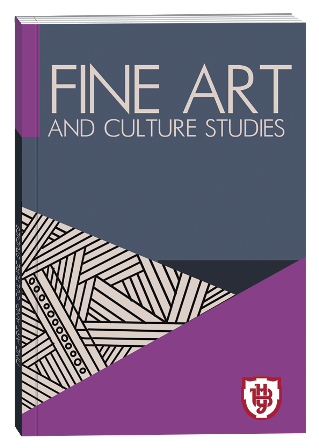CONCERT ACTIVITY IN THE PROFESSIONAL TRAINING OF A STUDENT OF HIGHER EDUCATION ON THE EXAMPLE OF THE ART PROJECT OUR NATIVE – UKRAINIAN: METHODOLOGY AND PRACTICE
DOI:
https://doi.org/10.32782/facs-2023-4-14Keywords:
art project, concert, concert activity, concert organization, concert preparation methodAbstract
The purpose of the article is dictated by the nature of the problem of preserving the cultural heritage of Ukraine and consists in identifying and overcoming the difficulties that arise in the process of preparing, organizing and conducting a concert of Ukrainian music. Methodology. The research used such methods as cultural, musicological, theoretical, historical in combination with the practical activities of musicians in the city of Lutsk. Scientific novelty. The article has a problematic, generalizing, overview character. For the first time, during the fight against Russian aggression, a charity Art project in support of the Ukrainian National Union of Soviet Socialist Republics was prepared, organized, conducted and covered in the press, organized by members of the Volyn regional organization of the National All-Ukrainian Music Union. The concert took place in the assembly hall of Lesya Ukrainka Volyn National University on March 24, 2023. Conclusions. Ukrainian culture stands out at the world level not only because of the war, but because of its unique, powerful, multifaceted, living and expressive nature. She impresses with her inner strength and beauty. Through cultural initiatives such as exhibitions, films, festivals, presentations, discussions, performances and theatrical productions, Ukrainian artists introduce our cultural, ideological and political narratives into the European context and ensure the continued interest of Western society in the conflict. Cultural institutions continue to raise financial resources for a variety of purposes, including supporting the military, humanitarian aid to war victims, renovating schools and hospitals, and providing arts and cultural infrastructure. Thanks to the field of culture, we tell the whole world about the events that are happening, including Russian crimes and other aspects. Culture belongs to the Ukrainian people and reflects our identity. Musical art is an integral part of Ukrainian culture in general and plays an important role in the fight against Russian aggression.
References
Як сфера культури підтримує Україну від початку війни. Lifestyle: веб-сайт. URL: https://life.nv.ua/ukr/amp/kulturniy-front-yak-sfera-kulturi-pidtrimuye-ukrajinu-pid-chas-viyni-50279187.html (Дата звернення 02.09.2023)
Огієнко І.І. Українська культура: Коротка історія культурного життя українського народу. К. 1918. 273 с.
Побережна Л.Л. Розвиток естетичної культури студентів музично-педагогічних факультетів засобами української музики: Автореф.дис.…канд. пед. наук: 13.00.02. К.: НПУ ім. М.П.Драгоманова, 2001. 18 с.
Полубоярина І. І., Присталов І. К. Особливості організації концертно-просвітницької роботи студентів-музикантів. Innovative solutions in modern science № 1 (1), 2016. С. 1–10.
Силко Р.М. Розробка, організація та проведення художньо-мистецьких заходів: посібник. Чернігів: НУЧК. 2018. 62 с.
Юрій Юцевич. Музика: словник-довідник. Тернопіль, 2003. 404 с.
Українська музична енциклопедія. У 2 т. Т. 2. [Е – К] / гол. редкол. Г. Скрипник. Київ : Видавництво Інституту мистецтвознавства, фольклористики та етнології НАН України, 2008. С. 535–537.
Дейнега О.В. Організація та проведення культурно-мистецьких масових заходів. Методичний посібник. Полтава. 2014. 42 с.
Щолокова О. П. Методика викладання світової художньої культури: підручник для студ. пед. ун-тів. Вид. 2-е. К. 2009. 288 с.
Шреєр-Ткаченко О. Історія української музики. К.: Муз.Україна, 1990. 147 с.







